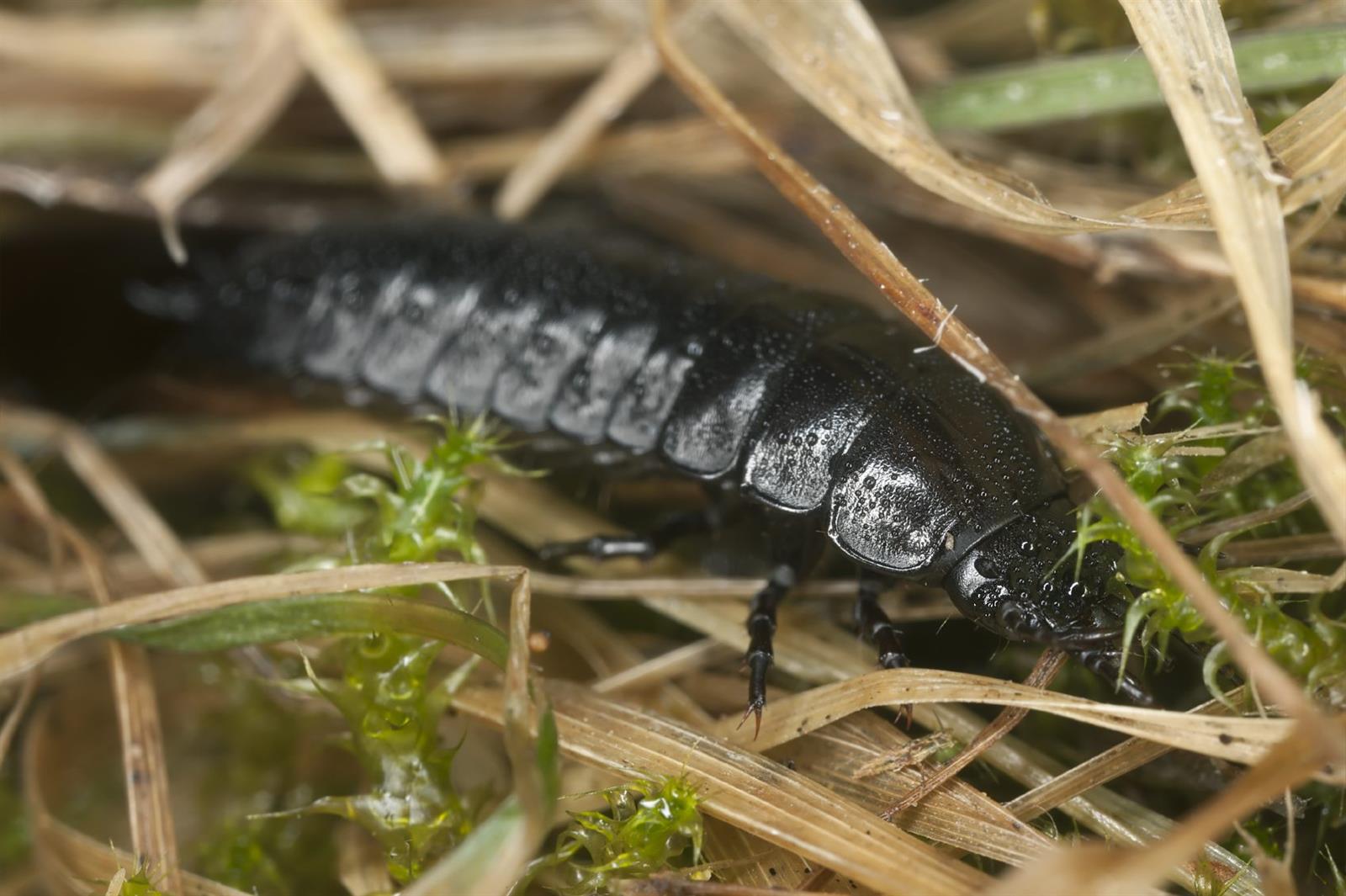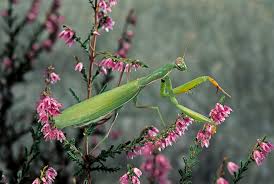 | Ground Beetles (Carabidae)
There are about 2,000 different species of ground beetles in North American. The ground beetles we encounter in the garden are nocturnal and they dig down into the mulch and other organic matter during the day. They help the garden by eating common garden pests like Caterpillars(and other insect larvae), Ants, Aphids, Maggots, Wireworms, and Slugs. A few species of ground beetles will also eat the seeds of invasive weeds such as lambs quarter, foxtail, ragweed, and thistle. |
 | Praying Mantis (Mantodea)
The Praying Mantis is a most interesting and enjoyable beneficial insect to have around the garden. Praying Mantis has an enormous appetite and will eat avariety of aphids, leafhoppers, mosquitoes, caterpillars and other soft-bodiedinsects when young. Later theywill eat larger insects, beetles, grasshoppers, crickets, and other pestinsects. Praying mantises are large, solitary,slow moving, and predaceous insects that catch their prey with their front legs.
|